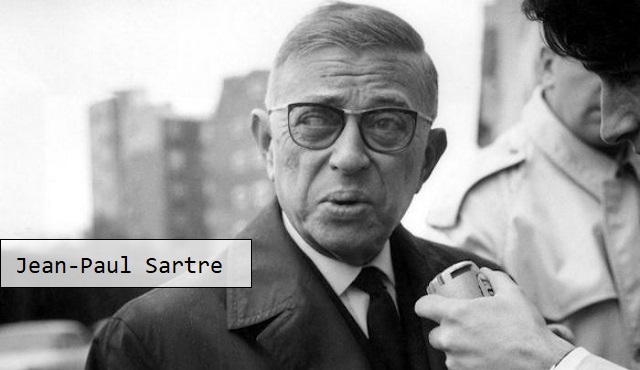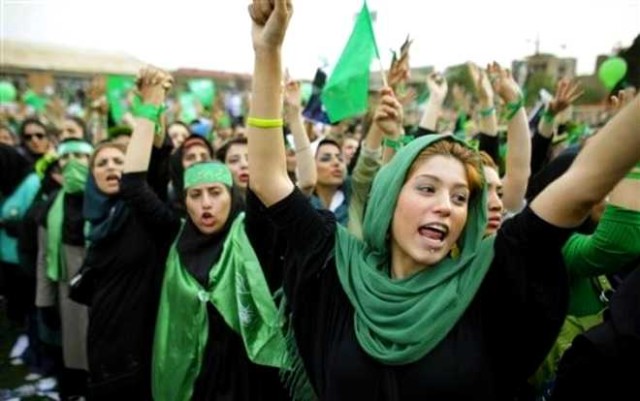Islamo-Leftism [Part 1]

Editor’s note: The following is a translation by Ibn Warraq and Robert Kerr of Michel Onfray’s L’Art d’Etre Francais (The Art of Being French, Bouquins, 2021), published here for the first time
The words…
Sartre, again and again…
This man is a compass that points south! Sartre, deluded as he was, missed out on the perilous rise (as a professor in Le Havre, he found virtues in Hitler, according to Philippe Dechartre who was his pupil at the time – I have this information from his son Emmanuel…) of the Popular Front (he did not vote and despised the masses marching in the streets…), on the catastrophic defeat in 1940 (Beauvoir found the Germans who took her under their wing very sympathetic…), of the Occupation (in 1944, he found the German officers in the subway very polite and wrote about it….), the Resistance (he later claimed to be in the Resistance, but probably in the same group as Marguerite Duras, who was sleeping with a lout from the Gestapo…), the Liberation (he repeatedly concealed people as compromised as himself, including his publisher, whom he whitewashed and who whitewashed him in return…), he calls de Gaulle all manner of names (“fascist” being the most courteous, but there are also “reactionary pimp”, “pig”, “bloody bastard”, or “shit”, see his Interviews with John Gerassi between 1970 and 1974), he gave the Soviet kiss to all the Marxist-Leninist dictators the World has ever known (Stalin, Mao, Che Guevara, Castro, Kim Il-sung), he supported the Palestinian terrorists who killed Israeli athletes at the Munich Olympics, he defended the Baader-Meinhof gang, he asked people to vote François Mitterrand… One wonders why, in Le Siècle de Sartre, in the year 2000, Bernard-Henri Lévy undertakes to praise such a man!
Of course, Sartre is also on the side of the Ayatollah Khomeini! Never late for an infamy, Jean-Paul Sartre supported this man exiled in Neauphle-le-Château in the Yvelines where France had granted him hospitality. From October 1978 to February 1979, the Iranian dignitary spent 114 days there; Sartre joined his support committee! It is not surprising that this episode is mostly concealed. In fact, it is not mentioned either in his authorized biographies, nor in the Dictionnaire Sartre, nor in the Album Pléiade, nor in the chronologies which accompany the three volumes of philosophy in this collection, nor in La Cérémonie des adieux that Simone de Beauvoir brought out in 1981, to give an account of the last years of her companion.
Sartre’s political thinking was as superficial as a teenager’s petulance: a bourgeois had stolen his mother, whose affection he had enjoyed alone since her widowhood, the child was then fifteen months old, and this remarriage, when he was twelve years old, had triggered in him an unquenchable hatred of the bourgeois. At least the idea he had of them. From then on, anything and everything that attacked the bourgeoisie acted as an absolute ideal for him. The left was his family, since his mother’s remarriage had robbed him of it. Les Mots describes this neurosis between the lines. The existential psychoanalysis elaborated by the philosopher justifies this genealogical, biographical, and psychological reading of his political commitments.
Like Stalin or Mao, Guevara or Castro, Mao or Kim Il-sung, Khomeini is a kindred spirit of Sartre. Nationalism, imperialism, colonialism – these are the enemies since they embody the law of the father for this cultured man who ingenuously admits he has no subconscious… An Ayatollah who opposes the Shah of Iran – who was portrayed as an agent of American imperialism, also having good relations with Israel – is a new kinsman! It doesn’t matter that the Shah was dropped by the United States, which worked to replace him with the Ayatollah – by no means the least of the follies of American policy, which was also allied with bin Laden for a time, anticommunism makes for strange bedfellows Sartre was happy to support a man who proposed to do away with the bourgeoisie. There is no point in looking a gift horse in the mouth!
The same neurosis animated Sartre when he belatedly became an ally of the FLN in Algeria: the progenitor in this case was General de Gaulle, the aforementioned “reactionary pimp”. His zeal remained undiminished as the aim was to establish a socialist regime on the other side of the Mediterranean. It doesn’t matter that this change of regime ushered in the return to the traditional patriarchal values promoted by Islam. If the paternal demiurge were killed, the bloodshed would be without consequence, even acting as a catharic ablution.
This period of Sartre’s support for the Ayatollah Khomeini, between the end of 1978 and the beginning of 1979, is recounted by Beauvoir in La Cérémonie des adieux (published in English as Adieux: A Farewell to Sartre in 1981). The philosopher died a few months later, on 15 April 1980. She recounts the end of the life of this man who had smoked and taken drugs more than he should have for decades. Now half-blind, half-deaf, he was no longer himself, drooling, drinking, suffering from memory loss, having a peeled tongue from swallowing amphetamines, he rambled, taking two days to read Le Nouvel Observateur (in 1973), and furthermore he had diabetes, etc. This is this man whom his courtiers cast into the arms of the Ayatollah Khomeini, in the aftermath of which Pierre Victor (alias Benny Lévy; his last personal secretary) obtained from him, in March 1980, interviews for Le Nouvel Observateur in which he, who had justified Palestinian terrorism, converts… to philosemitism! These interviews were published under the title L’Espoir maintenant.
Let’s leave Jean-Paul Sartre there. He wrote nothing about this companionship with the Ayatollah, which is to say that he was no longer himself, having hitherto made a headline out of everything he did. While he gave the impetus to Islamo-leftism, the rest came to pass without him.
COLUMN BY
RELATED ARTICLES:
‘Islamophobia’ prof Hatem Bazian claims ‘the Muslim is presumed guilty’ on American campuses
From Minneapolis to Vienna, projecting weakness invites aggression
India: Muslim who slit the throats of a dozen civilians is killed in Srinagar
France: Muslim screaming ‘Allahu akbar’ riddles car with bullets, threatens female jogger
Afghanistan: Intelligence agents dump 3,000 litres of liquor into Kabul canal
Why the UN Human Rights Council Has Outlived Its Usefulness
Turkish judge: ‘Women should not demonstrate against femicide’
Kenya: Muslims murder six people and torch homes
EDITORS NOTE: This Jihad Watch column is republished with permission. ©All rights reserved.

